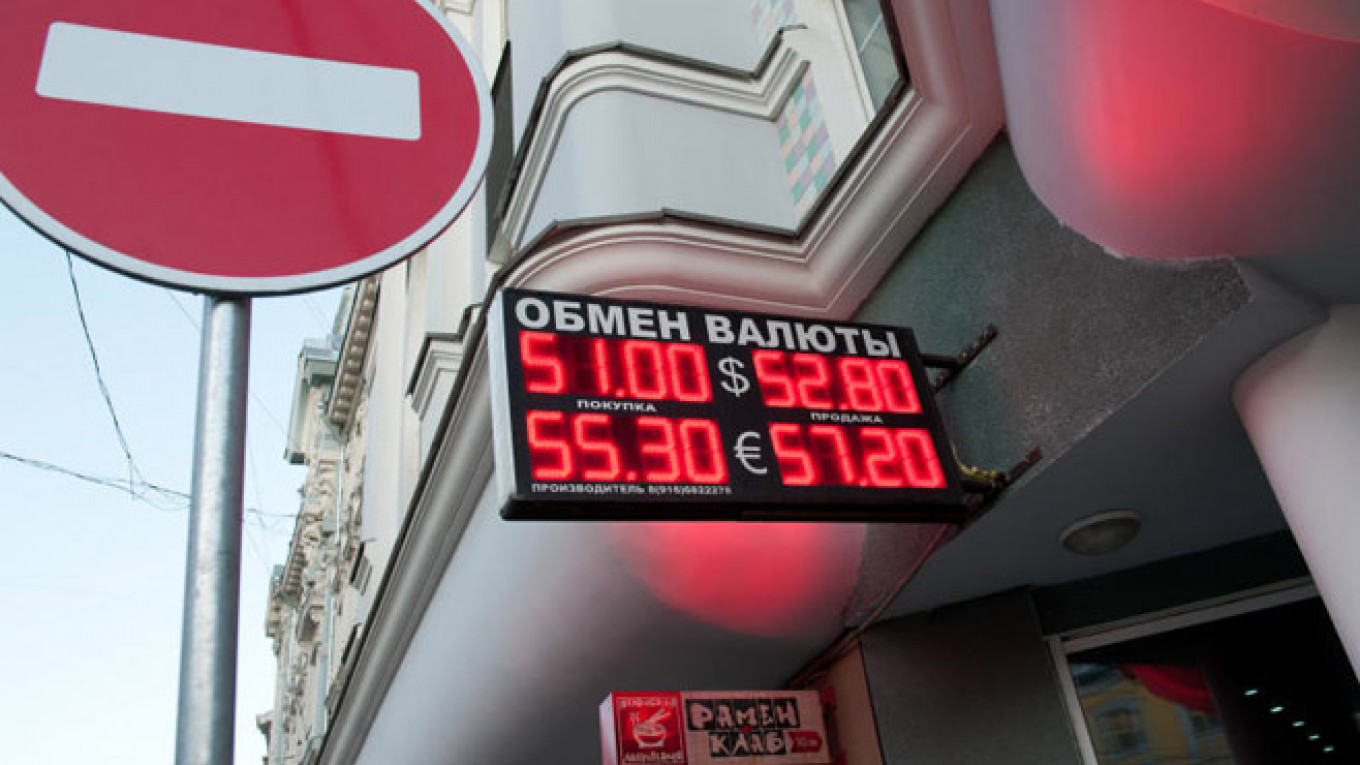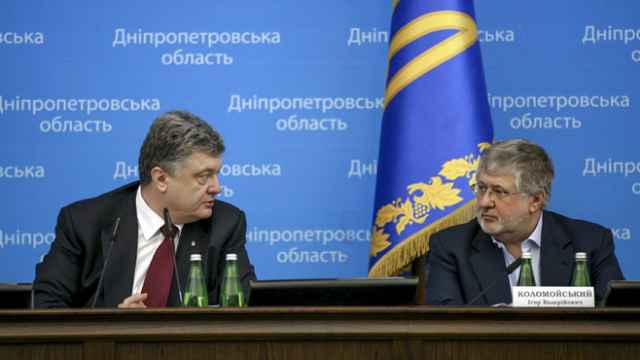Russian leaders were overflowing with optimism about the markets and the economy as the ruble rose in value last week to 53.6 against the U.S. dollar and 57.95 against the euro. That was an improvement of 28.9 percent and 25.4 percent respectively since early February.
Analysts had initially linked the ruble's value to the price of oil, but the ruble broke free in March-April, continually gaining in value even while the price of Brent hovered between $55 and $60 per barrel. However, this is simply a natural correction after consumer fears pushed the ruble excessively low in winter.
Interestingly, that downward swing was the worst among all global currencies, and the current upward surge is the highest.
Back then, the mood in Russia was at its darkest as observers worried that oil prices might fall as low as $30 to $40 per barrel, banks and state-owned companies would struggle making scheduled payments against their hefty foreign debts and that Russia's unpredictable foreign policy could trigger additional problems.
Now the price of oil is more or less stable, the peak of the debt payments has passed and the consequences were not as terrible as anticipated. Economic Development Minister Alexei Ulyukayev estimates that Russian companies paid down more than $60 billion of debt between December 2014 and March 2015.
Corporations needing foreign currency used the currency repo mechanism with the Central Bank, keeping pressure off of the market. According to surveys of business managers, the pace of the downward trend in business activity is slowing in both the industry and services sectors.
The decline in demand on foreign currency resulted in part from the 40.7 percent fall in imports in January 2014-January 2015, the cheaper ruble, Western sanctions and Russia's so-called "counter-sanctions."
Many analysts believe the ruble is becoming excessively strong and could soon hit a plateau. Exporters have already stopped selling foreign currency as a result. The Central Bank will probably raise the currency repo rates, limit its volume, lower the ruble rate where possible and buy foreign currency to replenish depleted reserves.
Uncertainty regarding foreign policy, a third factor influencing the ruble, has decreased but not disappeared entirely. A resumption of the war in Ukraine, new Western sanctions or Russian retaliatory sanctions could easily push the ruble back down to January levels.
Any investors who risk "playing" the ruble should at least believe they can predict the course of foreign policy. However, those not privy to the Kremlin's secret plans can make use of tools such as Russia's political uncertainty index recently introduced by Citibank.
As a proxy for this indicator, analysts used the five-year CDS, or credit default swap, on Russia's foreign dollar debt, minus fluctuations in the price of oil.
This figure previously peaked in late 2008 and early 2009, and again sharply increased in late January and early February 2015 prior to the Minsk agreement. It has now dropped a bit, but not drastically.
That political risk factor will have an even greater influence on the price of Russian stocks over the next year than the price of oil will. As for the ruble, the foreign policies of Russia and the West will determine its future course.
Boris Grozovsky is an economic observer. This comment originally appeared in Vedomosti.
A Message from The Moscow Times:
Dear readers,
We are facing unprecedented challenges. Russia's Prosecutor General's Office has designated The Moscow Times as an "undesirable" organization, criminalizing our work and putting our staff at risk of prosecution. This follows our earlier unjust labeling as a "foreign agent."
These actions are direct attempts to silence independent journalism in Russia. The authorities claim our work "discredits the decisions of the Russian leadership." We see things differently: we strive to provide accurate, unbiased reporting on Russia.
We, the journalists of The Moscow Times, refuse to be silenced. But to continue our work, we need your help.
Your support, no matter how small, makes a world of difference. If you can, please support us monthly starting from just $2. It's quick to set up, and every contribution makes a significant impact.
By supporting The Moscow Times, you're defending open, independent journalism in the face of repression. Thank you for standing with us.
Remind me later.







